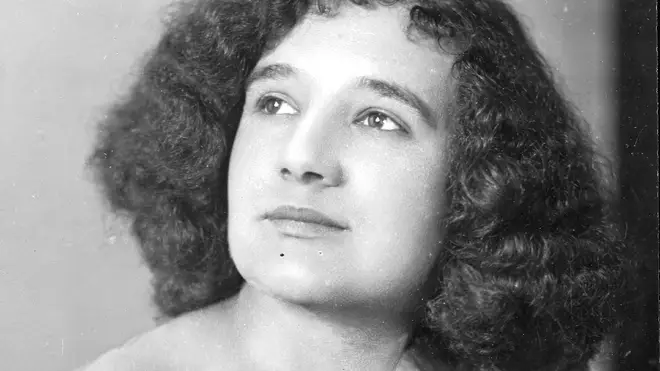On Air Now
Early Breakfast with Lucy Coward 4am - 6:30am
15 July 2021, 16:54 | Updated: 16 July 2021, 17:07

Did you know, the daughter of British composer Samuel Coleridge-Taylor was herself a brilliant composer and groundbreaking conductor?
Avril Coleridge-Taylor, born Gwendolyn Avril, was an English pianist, conductor and composer, and the daughter of composer Samuel Coleridge-Taylor.
Avril was born in 1903 and her mother was Coleridge-Taylor’s wife, Jessie Walmisley.
Born into a musical family, Avril followed in her father’s music-writing footsteps, and in 1915 obtained a scholarship to study composition and piano at what is now Trinity Laban Conservatoire of Music and Dance, in London.
Read more: Who was Samuel Coleridge-Taylor, the English composer referred to as ‘Black Mahler’?

Coleridge-Taylor went down in history when she became the first woman to ever conduct the HMS Royal Marines band, and she regularly conducted top orchestras, including London Symphony Orchestra.
In 1933, she made her conducting debut at London’s famous Royal Albert Hall. And in 1938, the Birmingham Daily Gazette reported on the fact she was “shortly to leave for America to conduct the Boston Symphony Orchestra”, something historic given her status as a woman, and not only a woman but a mixed-race woman.
The history-making conductor also founded and conducted the Coleridge-Taylor Symphony Orchestra, which had an adjoined musical society, and the Malcolm Sargent Symphony Orchestra.

Chineke! Orchestra - Samuel Coleridge-Taylor: Ballade for orchestra, Op.33
Her works include The Rustling of Grass, a reflective and nostalgic song written for voice and piano. And Ceremonial March, which is an orchestral work composed to celebrate Ghana’s independence.
In 1939, she moved to Buxted in East Sussex, and composed several works inspired by the landscape, including the orchestral piece, Sussex Landscape.
She also composed extensively for the piano – a concerto, and standalone pieces, including a Nocturne and a Rhapsody – and she was a prodigious performer on the instrument.

Randall Goosby and Zhu Wang | Grant Still: Suite for Violin and Piano, I. African Dancer
In 1952, Coleridge began a tour of South Africa and directly experienced the limiting and damaging prejudice of the apartheid policy. She was not allowed to work as a composer and conductor in the country when the government learnt of her Black heritage.
Perhaps inspired by this, she turned her composing to celebrating and campaigning for her heritage – her paternal grandfather was a Creole from Sierra Leone – and in 1957 composed her Ceremonial March specifically to celebrate the independence of a fellow West African nation, Ghana.
She wrote a biography of her father’s life and work, The Heritage of Samuel Coleridge-Taylor, in 1979 and she sadly died in a nursing home in Seaford, Sussex, in 1998.